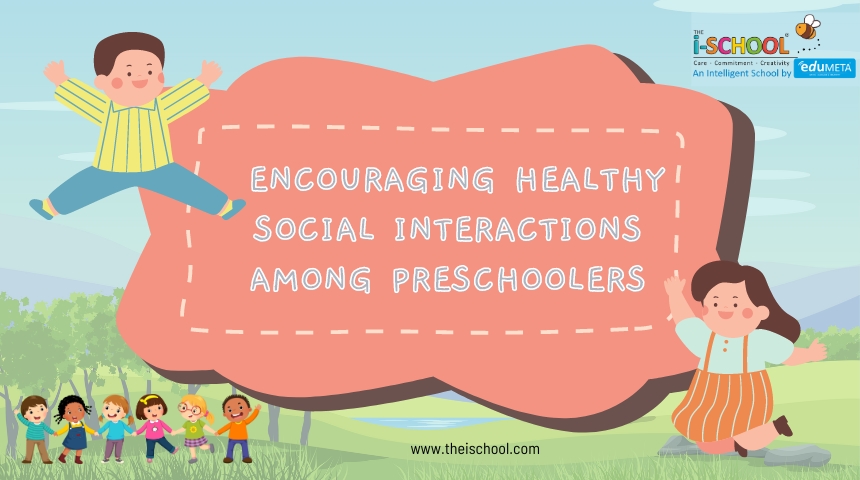Encouraging Healthy Social Interactions Among Preschoolers

Developing social skills is a crucial part of early childhood education. Encouraging healthy social interactions among preschoolers helps them build friendships, develop empathy, and learn effective communication. Here are some effective strategies to foster positive social interactions in a preschool setting.
1. Create a Welcoming Environment
Inclusive Atmosphere: Creating an inclusive and welcoming classroom environment is the first step in encouraging healthy social interactions. Ensure that every child feels valued and included by promoting diversity and acceptance.
Classroom Setup:
- Group Seating: Arrange seating to encourage group activities and interactions.
- Diverse Materials: Include books and toys that reflect various cultures and experiences.
2. Model Positive Behavior
Role Modeling: Children learn by observing adults. Teachers and caregivers should model positive social behavior, such as sharing, listening, and showing empathy.
Demonstrate Kindness:
- Acts of Kindness: Show kindness and respect in all interactions, setting a strong example for children.
- Conflict Resolution: Demonstrate calm and constructive ways to resolve conflicts.
3. Teach Social Skills
Explicit Instruction: Teaching social skills explicitly can help children understand and practice them. Use role-playing and social stories to illustrate concepts like sharing, taking turns, and expressing emotions.
Social Skills Activities:
- Role-Playing Games: Create scenarios where children practice greeting each other, sharing toys, and working together.
- Emotion Cards: Use cards with different facial expressions to help children identify and discuss emotions.
4. Encourage Cooperative Play
Structured Activities: Incorporate structured activities that require teamwork and cooperation. This not only helps children interact positively but also teaches problem-solving and negotiation skills.
Group Projects:
- Building Projects: Use blocks or other building materials for group construction projects.
- Art Collaborations: Encourage children to work together on a large mural or craft project.
5. Provide Positive Reinforcement
Acknowledge Good Behavior: Reinforce positive social interactions by acknowledging and praising good behavior. Positive reinforcement helps children understand the value of their actions and encourages them to repeat them.
Reward Systems:
- Sticker Charts: Use sticker charts to reward acts of kindness and cooperation.
- Verbal Praise: Give specific, positive feedback when children display good social skills.
6. Facilitate Peer Relationships
Friendship Opportunities: Encourage children to form friendships by facilitating playdates and small group activities. Provide opportunities for children to interact with peers they may not usually play with.
Peer Activities:
- Buddy System: Pair children with different classmates each week to work on tasks together.
- Small Group Games: Organize games that require children to work in pairs or small groups.
7. Teach Conflict Resolution
Problem-Solving Skills: Teach children simple conflict resolution strategies to handle disputes. This includes using words to express feelings, finding a compromise, and seeking help from an adult if needed.
Conflict Resolution Activities:
- Peace Table: Create a designated space where children can go to resolve conflicts peacefully.
- Guided Discussions: Help children talk through conflicts with guidance, focusing on listening and understanding each other’s perspectives.
8. Encourage Empathy and Understanding
Empathy Building: Activities that promote empathy help children understand and relate to others’ feelings. Reading books about different experiences and discussing emotions can foster empathy.
Empathy Activities:
- Emotion Sharing: Encourage children to share their feelings and listen to others.
- Storytime Discussions: Read stories that highlight empathy and discuss the characters’ feelings and actions.
Conclusion
Encouraging healthy social interactions among preschoolers is essential for their emotional and social development. By creating a supportive environment, modeling positive behavior, teaching social skills, and providing opportunities for cooperative play, teachers can help children develop strong, positive relationships. These early experiences lay the foundation for a lifetime of healthy social interactions.
Fostering these skills in preschoolers not only helps them build friendships but also equips them with the tools they need to navigate social situations throughout their lives.
